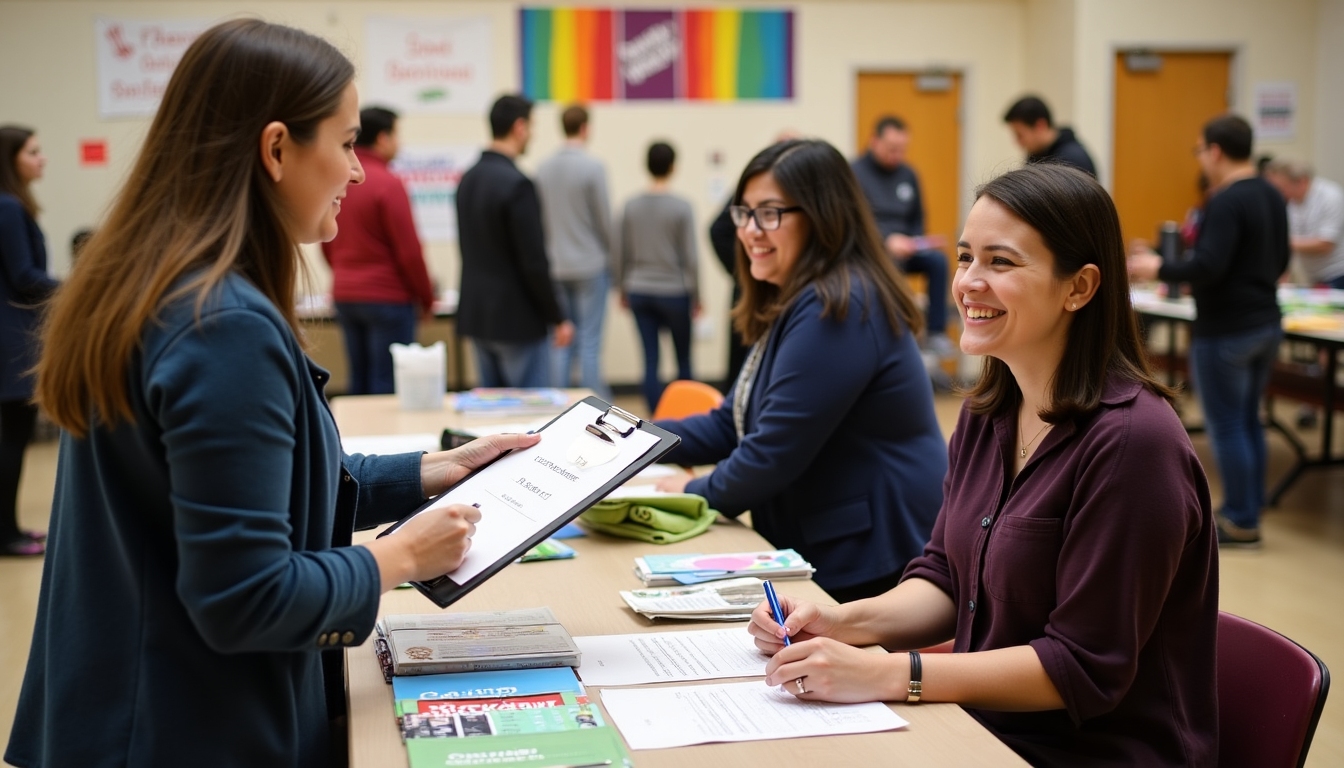Enhancing Leadership Skills Through Volunteering
By , April 27, 2025
Volunteering is more than just helping others—it’s a way to grow personally, especially when it comes to leadership. Whether you’re organizing a community event or joining youth advocacy volunteer projects, you’re stepping into real-world situations that build skills like communication, teamwork, and problem-solving. This article shows how volunteering can shape you into a better leader, with stories from my own experiences and tips you can use right away. Ready to unlock your potential? Let’s dive in.

Why Volunteering Builds Leadership
Leadership means guiding people toward a shared goal. It’s about inspiring others, making decisions, and solving problems. Volunteering puts you in situations where these skills come to life. When you volunteer, you often have to take charge, work with different people, and figure things out with whatever you’ve got. That’s leadership in action.
For example, organizing a food drive means planning, talking to people, and getting everyone on the same page. These tasks teach you how to lead without a fancy title. Plus, working with diverse groups—like kids, seniors, or people from different cultures—helps you understand others better, a must-have for any leader.
I saw this firsthand when I volunteered at a local youth center. I led a group of teens to paint a mural in our neighborhood. At first, I wasn’t sure I could handle it—some of them didn’t even want to be there! But I figured out how to get them excited by asking for their ideas and giving them jobs that fit their skills. By the end, we had a colorful mural and a team that actually worked together. That’s when I realized volunteering was teaching me to lead.

Key Leadership Skills You Gain
Volunteering builds specific skills that make you a stronger leader. Here’s a breakdown:
- Communication: You talk to all kinds of people—volunteers, organizers, or the community. This sharpens how you explain ideas and listen.
-
Example: Coordinating a fundraiser taught me to write clear emails and speak up in meetings.
-
Teamwork: Most projects need a group effort. You learn to share tasks and support each other.
-
Example: Building a playground with others showed me how to keep a team moving forward.
-
Problem-Solving: Things don’t always go as planned. You get good at finding solutions fast.
-
Empathy: Helping people in need makes you care more and understand their side.
-
Time Management: Juggling volunteering with life teaches you to prioritize.
These aren’t just ideas—they’re skills I’ve built over time through volunteering.

Youth Advocacy Volunteer Projects: A Leadership Goldmine
One of the best ways to enhance leadership skills through volunteering is by joining youth advocacy volunteer projects. Advocacy means standing up for something—like better schools or mental health support for kids. When you volunteer here, you’re not just helping; you’re leading.
Take a project I worked on: a campaign to get more books in school libraries. I had to research, plan events, and talk to teachers and students. It was like running a mini organization! These projects let you practice big leadership moves—strategy, teamwork, even public speaking—while making a difference for young people.

Studies back this up. The Corporation for National and Community Service found that volunteers often gain skills like public speaking and team management—key pieces of leadership. Youth advocacy takes it further by putting you in charge of real issues, giving you a chance to mentor others and grow your confidence.
Getting Started: Your Volunteer Journey
Want to boost your leadership through volunteering? Here’s how to begin:
- Find What You Love: Pick something you care about—animals, kids, the environment. It’ll keep you motivated.
- Set Goals: Decide what skills you want to work on, like speaking or organizing.
- Start Easy: Try a one-day event if you’re new to this.
- Ask for Tips: Get advice from others to improve.
- Think It Over: After each project, ask yourself what you learned.
Roles like event planner or team leader are great for leadership practice. Look for chances to step up!

Facing Volunteer Challenges
Volunteering isn’t always smooth. Here’s what might come up and how to handle it:
- No Time: Life’s busy. Fix: Schedule volunteering like a class or meeting.
- Feeling Lost: New tasks can be hard. Fix: Ask questions and learn as you go.
- Too Much: You might overdo it. Fix: Say no when you need to.
- Slow Results: Change takes time. Fix: Celebrate small steps forward.
I’ve hit these bumps myself. Once, I took on too many tasks and felt swamped. Learning to pace myself made all the difference.

How It Pays Off
Volunteering doesn’t just build skills—it can help your career too. A Harvard Business Review article notes that hands-on experiences like volunteering often beat classroom training for leadership growth. I’ve used what I learned to lead meetings at work and solve problems faster. It’s real-world training you can’t get from a book.
Wrapping Up
Enhancing leadership skills through volunteering is a win-win. You help your community while growing into a better leader. From youth advocacy to local projects, every step teaches you something valuable—communication, teamwork, or just staying calm when things get tough. My own journey proves it: volunteering turned me from a nervous beginner into someone who can lead with confidence. Ready to try it? Find a cause you care about and start today.
